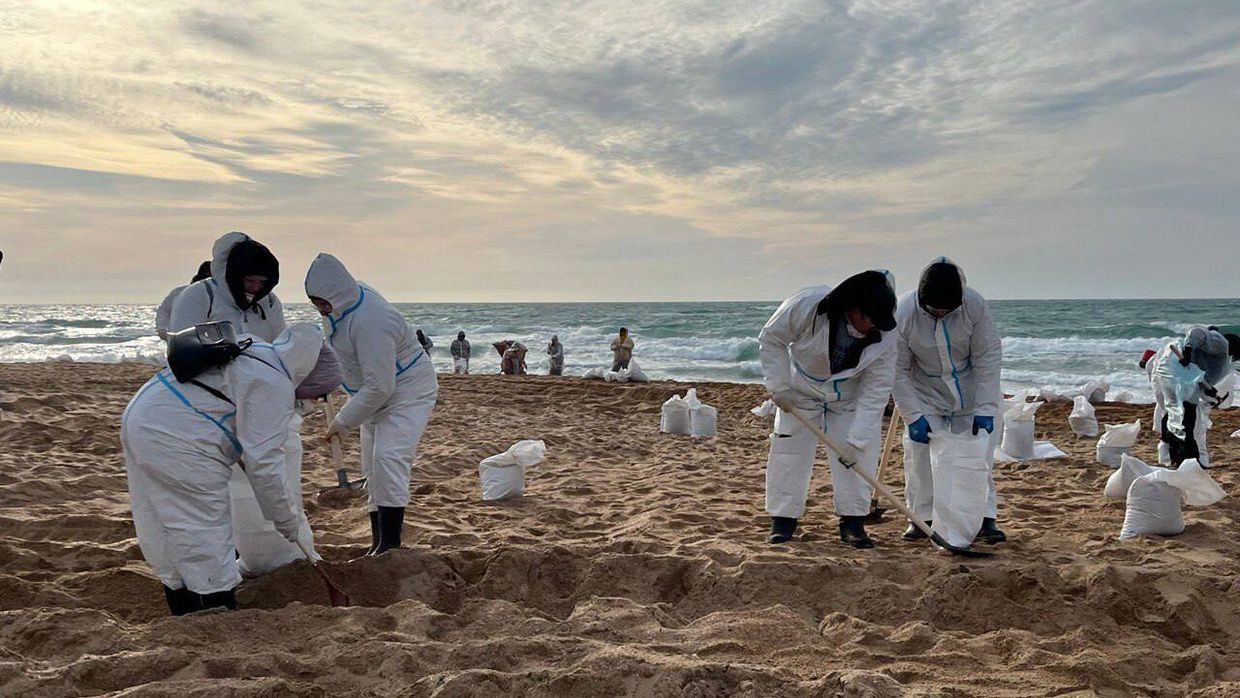Large pollution slick approaches Crimea, Russian coast impacted, Ukraine confirms

Editor's note: This story has been updated with the confirmation from the Ukrainian side.
A 14-square-kilometer oil slick is moving toward the Crimean peninsula, with most of the spill already reaching the coast of Russia's Krasnodar Krai, the Crimean Wind monitoring group reported on Sept. 2, citing satellite imagery.
The spill originated on Aug. 29 at the Caspian Pipeline Consortium Marine Terminal near Novorossiysk in Krasnodar Krai. The slick initially covered around 40 square kilometers, according to the report.
The main slick currently stretches about 100 kilometers (62 miles) along the Krasnodar coast — from the port city of Novorossiysk to the Taman Peninsula — covering an area of roughly 211 square kilometers. The smaller slick breaking off from the main mass is drifting toward Crimea, according to the Crimean Wind.
Ukraine's Navy spokesperson Dmytro Pletenchuk confirmed an oil spill in a Russia-controlled area.
"We, for our part, can confirm the very fact that oil or oil products have been spilled over a fairly large area," he told RBC-Ukraine. "Most likely from one of the vessels directly navigating in the area under the control of the Russian Federation."
Russian authorities have remained largely silent on the incident and appear to be downplaying its severity, the monitoring group added.
This is not the first time a Russian oil spill has caused environmental damage in the Black Sea.
In December 2024, two Russian tankers, Volgoneft-212 and Volgoneft-239, sank in the Kerch Strait, resulting in a fuel oil spill that spread across the Black Sea. The spill caused significant ecosystem pollution, with petroleum residues affecting areas from the occupied cities of Kerch to Sevastopol and Yevpatoria.
Crimea has been under occupation since Russia illegally invaded and annexed the peninsula in 2014.
Following Russia's full-scale invasion in 2022, Ukrainian forces have repeatedly targeted the Crimean Bridge, a key supply and transport route for Russian troops operating in the occupied Ukrainian territories.















